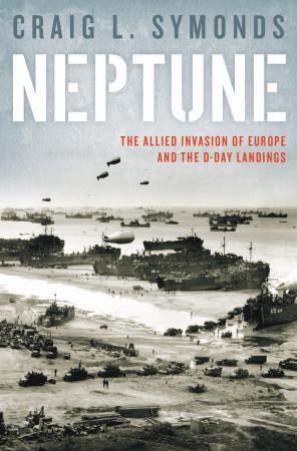Neptune: The Allied Invasion of Europe and the D-Day Landings by Craig L. Symonds

Author:Craig L. Symonds [Symonds, Craig L.]
Language: eng
Format: epub, pdf
Publisher: Oxford University Press
Published: 2016-05-08T16:00:00+00:00
PUTTING A LID ON THE CATASTROPHE did not mean there were no repercussions. Ernest King ordered eight more destroyers from the U.S. Navy to join Ramsay’s command, adding, “Experience against E boats desirable.” Kirk did not think that was sufficient. He wanted to use the battleship Nevada and her big 14-inch guns to blast the E-boat pens in Cherbourg. Ramsay was cool to the idea, partly because it might alert the Germans that something was up, but also because it deviated from the carefully structured Neptune operational plan. To Kirk, this was simply another example of British unwillingness to depart from the script. Kirk was annoyed that his previous attempt to obtain operational control over the waters around Cherbourg had been rejected, and angry that the cumbersome command structure in Plymouth had resulted in the convoy having an inadequate escort. In an official letter to Ramsay, he expressed himself rather strongly on both issues. Ramsay took umbrage at Kirk’s tone and thought Kirk had “quite lost his sense of proportion.” He concluded that Kirk “is not a big enough man to hold the position he does.” For his part, Kirk attributed Ramsay’s attitude to the British tendency to view all operations as “a set piece” in which “no initiative was possible.” The relationship got testy on May 7 when Ramsay met with the command teams of both of his naval task forces. After meeting with Vian and his force commanders in the morning, Ramsay met with Kirk, Hall, and Moon in the afternoon. There, Kirk again brought up the question of attacking the German E-boat sanctuary in Cherbourg. Ramsay thought Kirk was being “stupid,” and admitted that “I somewhat lost my patience with him.” Ramsay’s final verdict on Kirk was that he was “a poor fish.” They had come a long way from being “Alan” and “Bertie.”49
Still Kirk wouldn’t let it go. Getting no satisfaction from Ramsay, he ensured that his concerns found their way through back channels to Eisenhower’s chief of staff, Beetle Smith. That irritated Ramsay even more, and he briefly considered an official reprimand of Kirk for violating the chain of command. At a meeting with both Eisenhower and Ramsay on May 8, Kirk again argued the importance of “blasting the German E-boats out of their nests.” Eisenhower asked Ramsay what he thought about the idea, and Ramsay explained why he thought a naval attack on Cherbourg was unnecessary and perhaps even harmful. Then, to Ramsay’s horror, Ike turned back to Kirk to ask what he thought of Ramsay’s argument. To Ramsay, that was outrageous. In his view, it didn’t matter what Kirk thought. Ramsay was the naval C in C, and Kirk was his subordinate. He was appalled that Eisenhower acted as if their views had equal merit. Ramsay kept quiet at the time, but he was furious. “It was a bad meeting,” he wrote in his diary, “& made me cross.”50
On an official level, Stark ordered an “immediate investigation” of the events in Lyme Bay, and the ensuing report cited several failures that could be taken as lessons.
Download
Neptune: The Allied Invasion of Europe and the D-Day Landings by Craig L. Symonds.pdf
This site does not store any files on its server. We only index and link to content provided by other sites. Please contact the content providers to delete copyright contents if any and email us, we'll remove relevant links or contents immediately.
The Radium Girls by Kate Moore(10923)
The Templars by Dan Jones(4198)
100 Deadly Skills by Clint Emerson(4091)
Rise and Kill First by Ronen Bergman(4026)
The Doomsday Machine by Daniel Ellsberg(3742)
The Rape of Nanking by Iris Chang(3530)
Killing England by Bill O'Reilly(3466)
Hitler in Los Angeles by Steven J. Ross(3450)
Stalin by Stephen Kotkin(3094)
12 Strong by Doug Stanton(3064)
Hitler's Monsters by Eric Kurlander(2740)
Darkest Hour by Anthony McCarten(2655)
Blood and Sand by Alex Von Tunzelmann(2615)
The Art of War Visualized by Jessica Hagy(2424)
Hitler's Flying Saucers: A Guide to German Flying Discs of the Second World War by Stevens Henry(2305)
The Code Book by Simon Singh(2222)
The Second World Wars by Victor Davis Hanson(2140)
Babylon's Ark by Lawrence Anthony(2077)
Tobruk by Peter Fitzsimons(2068)
